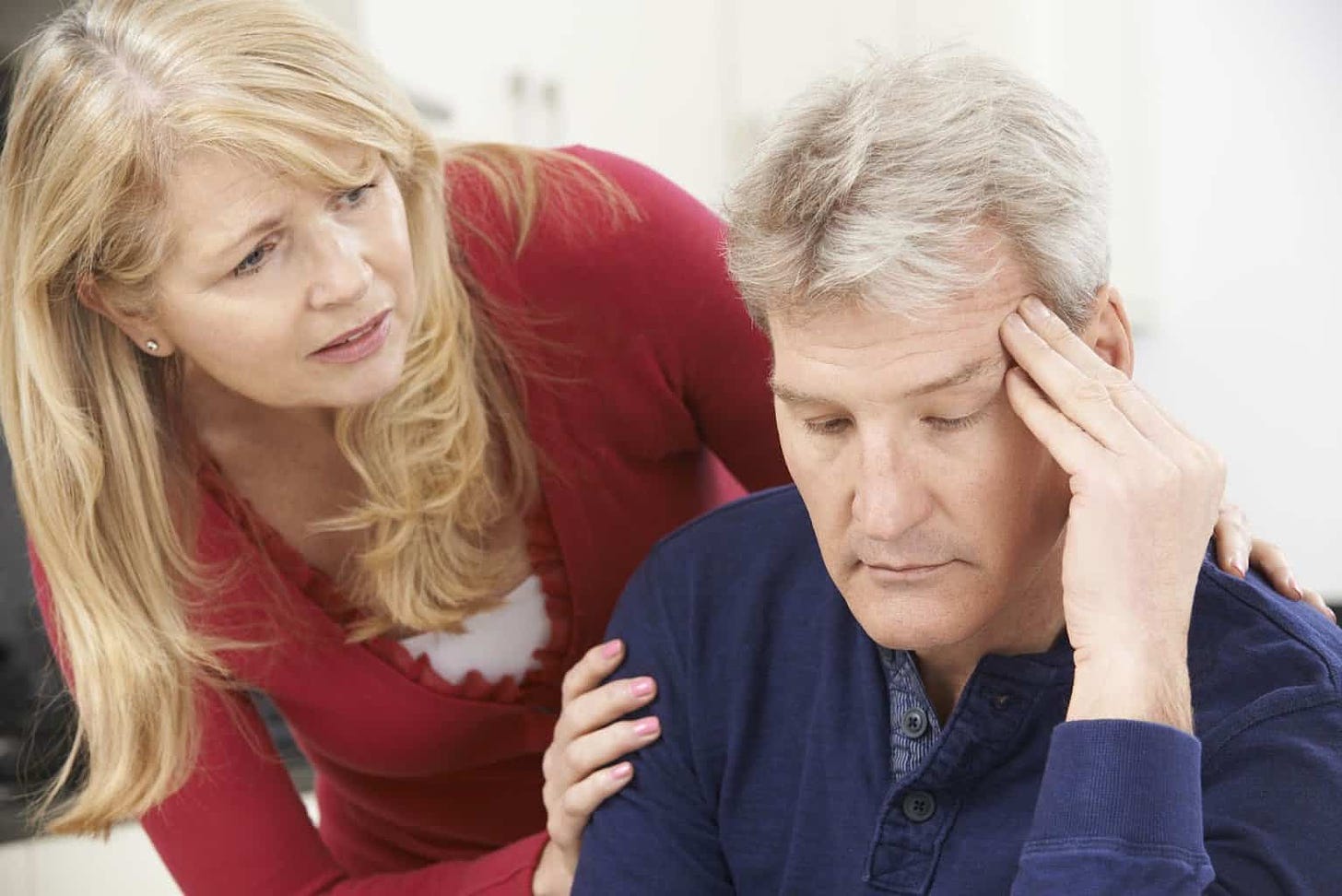5 early warning signs of dementia every man should know
…and the 45-second hack that may prevent dementia for the rest of your life…
5 early warning signs of dementia every man should know
Warning: you may be skyrocketing your risk of dementia…
Simply by ignoring the 5 early warning signs that doctors don’t warn you about…
And that’s why you need to know how easily you can reverse the signs of dementia with a 45-second brain hack I’ve discovered.
The mainstream media refuses to publicize this….but today the world is about to change forever…
Even top doctors are stunned.
And now the big pharma companies are panicking…
…and they’ve already gathered their army of lawyers to take this video down.
They’ve been trying to keep this a secret but every man has the right to see this… and now finally, the truth is coming to light…
———-
1 daily exercise that can prevent dementia in men
I’ve seen dementia up close and personal with members of my family, and it’s not something that I ever want to have to deal with myself.
It’s awful. When people lose their brain function, their whole family suffers.
It’s agonizing to watch someone you love not recognize you anymore.
That’s why I’m always interested in studies that show how to reduce the risk for dementia and brain function.
One thing that studies show over and over again…
…is that you can reduce the risk and incidence of dementia by staying or becoming active as you get older.
I want to be clear here. I’m not talking about being one of those people who spend 3 hours lifting weights everyday.
If you love doing that, go ahead, but I think there are much better ways to stay physically active.
What I’m talking about here is regular physical movement that you enjoy and that’s built into your regular routine.
That could mean gardening, walking, dancing, playing pickleball, doing yoga, going kayaking, or any other activity that you actually enjoy.
Physical activity in older adults may provide cognitive reserve to maintain function independent of the accumulation of diverse brain pathologies. Further studies are needed to identify the molecular mechanisms underlying this potential reserve and to ensure the causal effects of physical activity.
My colleague Heather has actually created steps that she doesn’t have to think about to be physically active.
She bought a three story house and put her bedroom on the third floor so she’ll have to walk up steps.
She also lives in a town where she can walk to the coffee shop and breakfast place, and often walks to both.
By making physical activity part of her regular lifestyle, she gets in a lot more movement overall.
It’s a smart approach.
Like me, Heather doesn’t like to hang out in the gym, so she looks for other, effective ways to stay active.
Personally, I will pace when I’m on the phone, because it’s a great way to get physical activity.
Sex is also a great way to get in some physical activity.
Physical activity works in part because moderate physical activity helps to regulate metabolism in a positive way.
And when your metabolism is healthy, you’re much more likely to be healthy yourself.
“Maintaining a lower BMI through physical activity could help prevent disturbed insulin metabolism that is often seen in aging, thus promoting brain health.”
The other thing about physical activity that’s important to note…
…is that if you aren’t moving much right now, then any increase in physical activity can be helpful.
You don’t have to go from zero to active super quickly.
In our primary results, compared with participants in the low step group and after accounting for all covariates, there was significantly lower risk of mortality for participants in moderate (HR, 0.28 [95% CI, 0.15-0.54]]; risk difference [RD], 53 [95% CI, 27-78] events per 1000 people) and high (HR, 0.45 [95% CI, 0.25-0.81]; RD, 41 [95% CI, 15-68] events per 1000 people) step groups.
All you really need to do is to add a little bit of physical activity at a time doing things you enjoy.
This can give both your brain and body a much better chance at aging in a very healthy way.
It’s worth it to look at your habits to see where you can put a little extra movement.
Your body and brain will thank you.
Matt Cook is editor-in-chief of Daily Medical Discoveries. Matt has been a full time health researcher for 26 years. ABC News interviewed Matt on sexual health issues not long ago. Matt is widely quoted on over 1,000,000 websites. He has over 300,000 daily newsletter readers. Daily Medical Discoveries finds hidden, buried or ignored medical studies through the lens of 100 years of proven science. Matt heads up the editorial team of scientists and health researchers. Each discovery is based upon primary studies from peer reviewed science sources following the Daily Medical Discoveries 7 Step Process to ensure accuracy.
Citations: https://n.neurology.org/content/98/20/e2023https://n.neurology.org/content/92/8/e811https://jamanetwork.com/journals/jamanetworkopen/fullarticle/2783711






